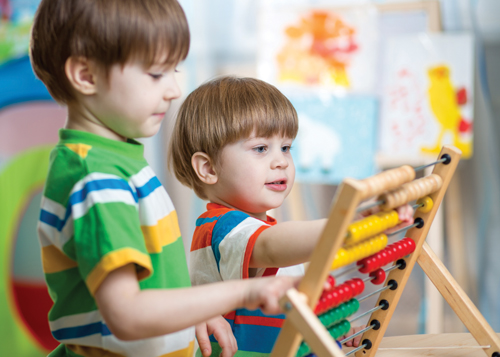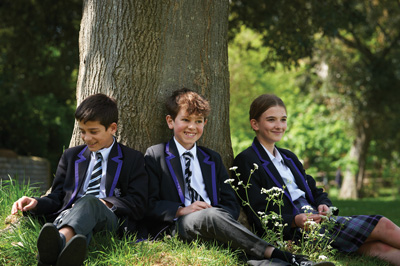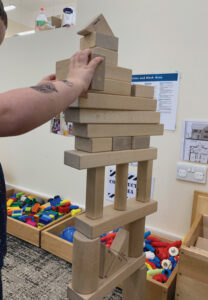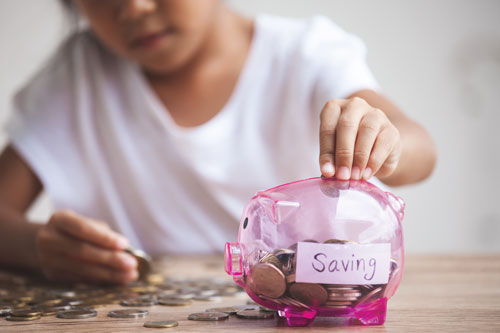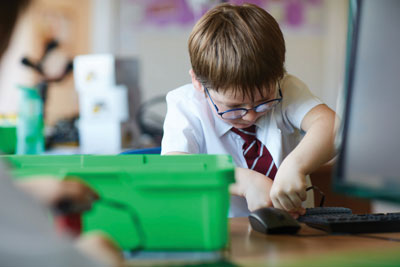
by Katie Morgan
Head of Pre-Prep, Great Ballard
Helping your child reach their academic potential
Childhood isn’t something to be hurried through or outgrown. It’s something to be treasured, protected and nurtured. Children should have the opportunity to climb trees, sit around campfires and learn what it means to be both independent and part of a community – and this spirit of curiosity and courage is just as important in the classroom as it is outdoors.
When it comes to learning, resilience plays a key role in helping children reach their academic potential. It’s not just about doing well in tests or ticking off tasks, it’s about developing the internal tools to keep going when things get difficult, to bounce back from mistakes and to believe in their ability to grow and improve. Resilient children are not immune to failure, they embrace it. They understand that setbacks are not signs of weakness, but opportunities to learn and adapt. They try, fall short, reassess and try again. And perhaps most importantly, they don’t rely solely on being ‘clever’ or ‘naturally gifted’ at something. Instead, they develop the mindset that effort, persistence and making mistakes are what lead to success.
This shift in thinking is at the heart of Growth Mindset, a concept introduced by psychologist Carol Dweck. Children (and adults) with a Growth Mindset believe that intelligence and ability are not fixed traits but can be developed with effort and time. Contrast that with a Fixed Mindset, where children might say, “I’m not good at maths,” or “I’ll never be picked for the cricket team.” These beliefs become self-fulfilling prophecies, halting progress before it even begins. Instead, we can help children shift their internal dialogue to something more empowering: “I can’t do this yet”, “If I keep practising, I’ll get there.” Parents play a critical role in shaping this thinking. Praising effort over outcome: “You worked so hard on that project,” rather than “You’re so smart” reinforces the idea that what matters is the process, not just the result.
This starts early – as toddlers learn to walk they wobble, they fall and they try again, undeterred. We cheer them on with gentle encouragement: “You can do it! Have another go!” In that moment, we instinctively understand that struggling is essential. But as children grow, and academic expectations increase, we sometimes lose sight of that truth. We want to protect them from frustration and disappointment, but in doing so, we risk stealing the very struggle that helps build resilience. Even our well-meaning attempts to comfort can unintentionally undermine a child’s sense of capability. Phrases like “Don’t worry, you don’t need to be good at everything” or “You’ll drop that subject soon anyway” send the message that some things are simply beyond their reach. But what children really need to hear is that persistence matters, that making mistakes is part of the journey and that with effort, they can get better.
One of the most practical things we can do is to help our children set meaningful goals. Not just the daily adult-led ‘to-do list’ goals like finishing homework or tidying their room but the ‘big dream’ goals that come from their own passions and interests. Whether it’s building a LEGO castle, learning a skateboard trick or writing a story, self-directed goals build motivation and show children what it feels like to work towards something that matters to them. Setting goals also taps into how our brains are wired. Every time we reach a milestone, our brains release dopamine (the ‘feel good’ chemical associated with achievement). Even the act of planning toward a goal can boost motivation. Children feel empowered when they take ownership of their aspirations, and that confidence carries over into more challenging areas of learning. When we combine that with a strong sense of perseverance (the ability to keep going despite setbacks), we’re giving our children a powerful foundation.
One effective strategy is to help them build a ‘catalogue of proof’: a mental (or even physical) list of things they’ve overcome. From learning to ride a bike to performing in a play, these small wins show children that they are capable, even when things are hard. Later, when they’re struggling with a spelling test or a tricky bit of maths, they can draw on that evidence: I’ve done hard things before, I can do this too.
Equally important is helping them see their mistakes not as failures, but as part of the process. Talk openly about your own errors and what you’ve learned from them. Instead of focusing solely on results, provide feedback that highlights strategy, effort and progress. Ask open-ended questions: “What did you try?” “What might you do differently next time?” “What worked well?” All of this takes time, patience and consistency. Resilience doesn’t happen overnight, it’s something we nurture over months and years, through small everyday moments. A bedtime chat about what went well today. A word of encouragement when homework feels tough. A quiet moment spent really listening to what’s on their mind, no matter how little it may seem.
It may also help to build habits around gratitude. Research shows that practising gratitude, whether through simple conversations at dinnertime or by journaling, boosts mental wellbeing. A child who regularly reflects on what they’re thankful for is more likely to maintain perspective during difficult moments. Their ‘gratitude bank’ becomes a buffer against life’s inevitable bumps.
Finally, let’s not forget the power of environment and routine. Small acts of ‘situational support’ (laying out clothes the night before, putting their bag by the front door or setting up a dedicated homework space) can reduce stress and build a sense of control and independence.
Helping children become resilient learners isn’t about shielding them from difficulty, it’s about walking alongside them as they navigate it. It’s about fostering curiosity, celebrating effort and creating space for them to struggle, reflect and grow. Because academic potential isn’t just about what a child knows. It’s about how they respond when they don’t know something – yet.
Great Ballard is a small school with big ambitions, providing affordable education from Nursery to GCSE. We believe wellbeing is the foundation that allows the real learning to happen. www.greatballard.co.uk



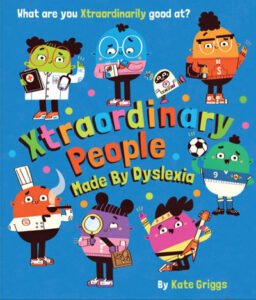
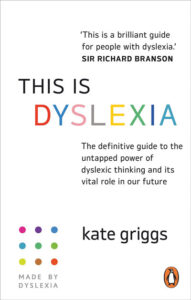 Dyslexic Thinkers) and This is Dyslexia (a book for adult Dyslexic Thinkers) – a new and revised edition was published in October 2024.
Dyslexic Thinkers) and This is Dyslexia (a book for adult Dyslexic Thinkers) – a new and revised edition was published in October 2024.
